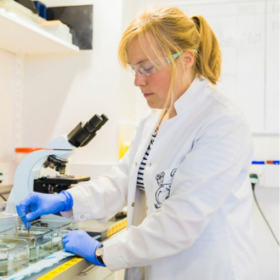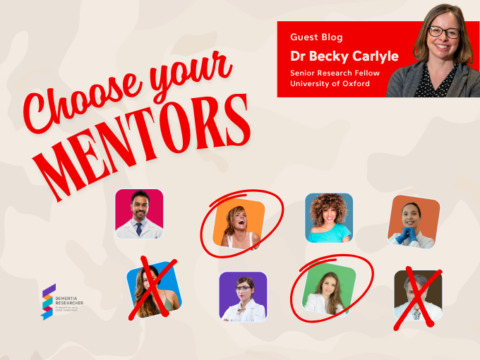I am going to confess I was feeling uninspired about writing this month. I feel like you’ve had enough of my opinions and that foolish man Elon has put little counters on all the tweets so I can see that nobody really reads or cares about the science ones, so I reached out to our little blogosphere community and asked what they wanted. Mostly because I am way older than pretty much all of them. I am a veritable dinosaur of academia, and was feeling the need to share my wisdom, bitter as much of it may be.
Turns out either they’re all either geniuses that know everything or they’re pathologically shy but eventually someone piped up that they hadn’t got their head around funding. Did they need it to get a post-doc? If they got a lectureship, how did they find it? When were they supposed to start looking? So today I shall attempt, to the best of my abilities, to answer this question.
Let’s start with the easy one. Academia being what it is, the earlier you start looking for funding the better. Having said that, if you’re looking for your very first post-doc post-PhD you don’t have to have your own funding. Chances are you’ll just be looking out for work in a similar area to what your PhD is in, and someone out there will have a job which is already funded. This job is likely to be anywhere between one and five years so bear that in mind when you make life changing decisions like buying a house.
If you want to make work for yourself and potentially set yourself up for a more successful future, there are a few funding schemes which are designed to be applied for immediately post-PhD. For these you ideally need to have a lab and a project in mind, and you need to be approaching the lab head about an application when you’re in the middle of your PhD. Needless to say, this is a lot of work on top of a thesis and all the associated science but it is doable if you have a very supportive potential supervisor.
Once you’re in post-doc number one I would say you need to potentially start thinking about what you want to pursue in terms of research. If you followed your PhD with a post-doc in a similar field, start to think about how you might carve out a small niche for yourself within the group you’ve landed in. Perhaps you have a technique from your PhD that nobody there does, or you have a disease model that nobody is currently using, how can you combine those skills to develop a new project? Or even once you’ve gotten going, have you managed to make a unique discovery that you might be able to take ownership of?
Now you have an idea of what you want to do it’s time to search for some funding. If you’re still at the very early stages of the new post-doc then think about small grants. For wet-lab work small constitutes £2-10,000k in the UK but for more data oriented projects these numbers can be even smaller. Often your institution may have small, start-up funding schemes which encourage younger researchers to apply. They are also often geared to new collaborations, so if you have skills but you need someone new to help you apply them, these kinds of schemes might let you explore that possibility. Outside the University, there are funders who often have ‘pilot’ application schemes, sometimes up to £50k, which are specifically designed to allow you to collect pilot data for a project which may turn into something larger.
If you’ve been successful and gotten one of these small pots of money, and you did some science and it was exciting and you managed to publish it, and you’re coming towards the middle/end of your first post-doc, it might be worth discussing applying for some larger funding yourself. At this point you could start to think about junior fellowships, which many funders have. You could also discuss the possibility of being a researcher co-investigator on a project grant. This would allow you to gain experience writing a grant with someone more senior, and provide you with the possibility of more funding for your project if that’s what you’re keen on doing.
At this point you’re in the rat race good and proper (more on that later) so it’s important to know where to find money and how to go about applying for it. For this, most Universities have a grants team or something similar. These teams should have records of all the major funding calls out there and knowledge of any local grants you might apply for. They’ll also be aware of your eligibility for these schemes and will help direct you to the right websites and so forth. As well as chatting to them, it’s also useful to chat with your finances team. These guys can be lifesavers and they’re usually on it when it comes to internal and external deadlines. Be nice to them, they’re very patient people.
But also be aware that if you work on a specific disease the funding calls may not be something your finance or research teams are aware of. For example, Alzheimer’s Research UK wasn’t even on the radar of my department, I heard about them through a collaborator who suggested I apply. But other areas like stroke, Parkinson’s and multiple sclerosis have their own charities which often fund all sorts of different types of research. So as well as relying on your local research teams to find the major calls it’s also worth being a bit pro-active and hunting out your own opportunities.
Now. This is all very well but there are a few major elephants in the room.
For a start, there are a fixed number of academic positions out there and an excess of researchers so when you start on this journey you need to make some difficult decisions. A colleague of mine at UCL said they have a two track system – teaching focussed and research focussed and this is almost how it is everywhere, even if they don’t tell you. And there are things you need to realise about both before you embark on them.
For a teaching focussed role, for example a lectureship, you need to realise the University is paying you to teach so that should be your main focus. During term time you will often have no time at all for research activities between lectures, small group teaching, practical classes, associated admin and various committees etc. This becomes easier the longer you are in the position so after a couple of years you will know your schedule and know when you have more time but essentially if you think you can do the same amount of research as you did in your post-doc you are mistaken. You will have free and unfettered access to students to help you. Whether you think this is a good thing or not is another question. However, in theory you have a permanent job. You are free to apply, or not, for funding as and when you please. The catch being that funding in the UK is quite competitive so if you suddenly look ‘unproductive’ because you’ve been busy…I don’t know…doing your actual job then this might be more of a challenge than it sounds.
For a research focussed role you basically need to hang on and hope.
Most Universities don’t keep you, even if you bring money in.
The unspoken rule seems to be that you have to have had several sets of funding before they will consider underwriting your salary. The way most funding schemes work is that the grant brings the University overheads, to pay for things like lights and buildings and so forth. The idea is that the more money you successfully get, the more overheads you bring in and therefore the more use you are to the University. So after a certain amount of money and success you are deemed lower risk because they’re more sure of continued overheads coming in, and so they’re more willing to underwrite you. The amount this is will vary from institution to institution. A colleague and I did the back of the envelope calculations and we think that at Oxford they have no interest in keeping you before you’ve brought in at least five to ten million over a period of about ten years.
As you can see, those last numbers are big and they might not apply to all institutions, but it means that before that point, or if you are unsuccessful in getting to that point, you may be stuck. You may have all the will in the world to stay in this job, to do amazing research and to help the odd PhD student and undergraduate but the reality is it may not be possible. I feel like this is ending on a negative note but it’s also very important that any ECRs reading this come away with the realistic notion that at some point they, like me, may realise that the system they’re trying to work in is simply too difficult. And at that point, as a friend of mine said recently, all the academic freedom in the world isn’t worth this much stress.

Dr Yvonne Couch
Author
Dr Yvonne Couch is an Alzheimer’s Research UK Fellow at the University of Oxford. Yvonne studies the role of extracellular vesicles and their role in changing the function of the vasculature after stroke, aiming to discover why the prevalence of dementia after stroke is three times higher than the average. It is her passion for problem solving and love of science that drives her, in advancing our knowledge of disease. Yvonne shares her opinions, talks about science and explores different careers topics in her monthly blogs – she does a great job of narrating too.

 Print This Post
Print This Post






